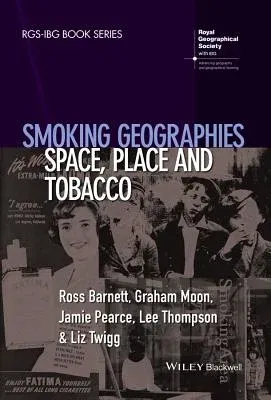Ross Barnett
(Author)Smoking Geographies: Space, Place and TobaccoHardcover, 27 December 2016

Qty
1
Turbo
Ships in 2 - 3 days
In Stock
Free Delivery
Cash on Delivery
15 Days
Free Returns
Secure Checkout

Part of Series
Rgs-Ibg Book
Print Length
312 pages
Language
English
Publisher
Wiley-Blackwell
Date Published
27 Dec 2016
ISBN-10
1444361929
ISBN-13
9781444361926
Description
Product Details
Book Format:
Hardcover
Country of Origin:
MY
Date Published:
27 December 2016
Dimensions:
23.11 x
15.49 x
1.78 cm
ISBN-10:
1444361929
ISBN-13:
9781444361926
Language:
English
Location:
Chicester
Pages:
312
Publisher:
Series:
Weight:
566.99 gm